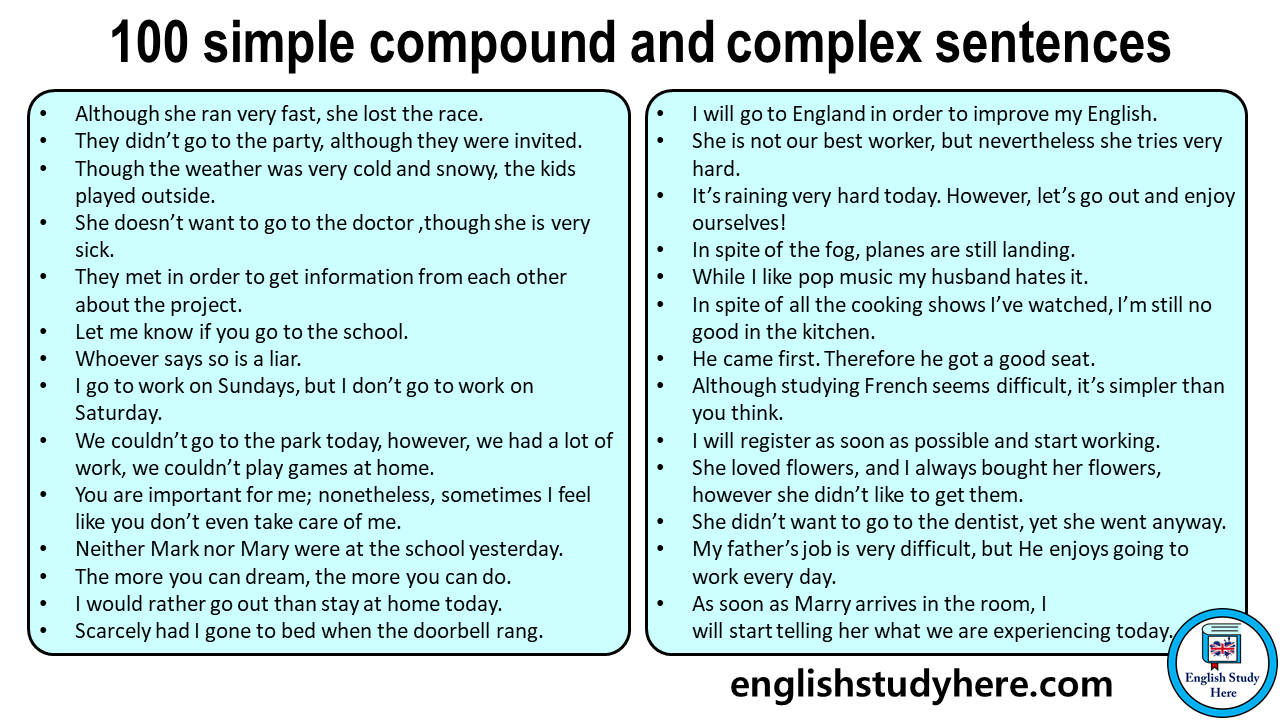Understanding the difference between compound and complex sentences is essential for improving your writing skills. Both types of sentences involve combining multiple ideas, but they do so in different ways. By learning how to use compound and complex sentences effectively, you can enhance the clarity and coherence of your writing.
Compound sentences consist of two independent clauses that are joined together by a coordinating conjunction, such as “and,” “but,” or “or.” These clauses can stand alone as separate sentences, but when combined, they create a stronger connection between ideas.
Examples of Compound vs Complex Sentences
For example, consider the following compound sentence: “I wanted to go to the beach, but it started raining.” In this sentence, “I wanted to go to the beach” and “it started raining” are two independent clauses that are connected by the coordinating conjunction “but.”
Complex sentences, on the other hand, contain an independent clause and one or more dependent clauses. Dependent clauses rely on the independent clause for their meaning and cannot stand alone as complete sentences. By incorporating dependent clauses, complex sentences can provide additional information or clarify the relationship between ideas.
Here is an example of a complex sentence: “Although it was late, she decided to go for a run.” In this sentence, “she decided to go for a run” is the independent clause, while “Although it was late” is the dependent clause that adds context to the main idea.
Compound and complex sentences can be combined to create more sophisticated structures in writing. By varying the types of sentences you use, you can add depth and nuance to your writing, making it more engaging for your readers.
It’s important to remember that both compound and complex sentences have their own unique strengths and purposes. Compound sentences are useful for showing relationships between equal ideas, while complex sentences can help to provide additional details or clarify complex concepts.
In conclusion, mastering the use of compound and complex sentences is essential for enhancing the quality of your writing. By understanding the differences between these two types of sentences and practicing their use in your own writing, you can elevate your communication skills and create more compelling and effective prose.
